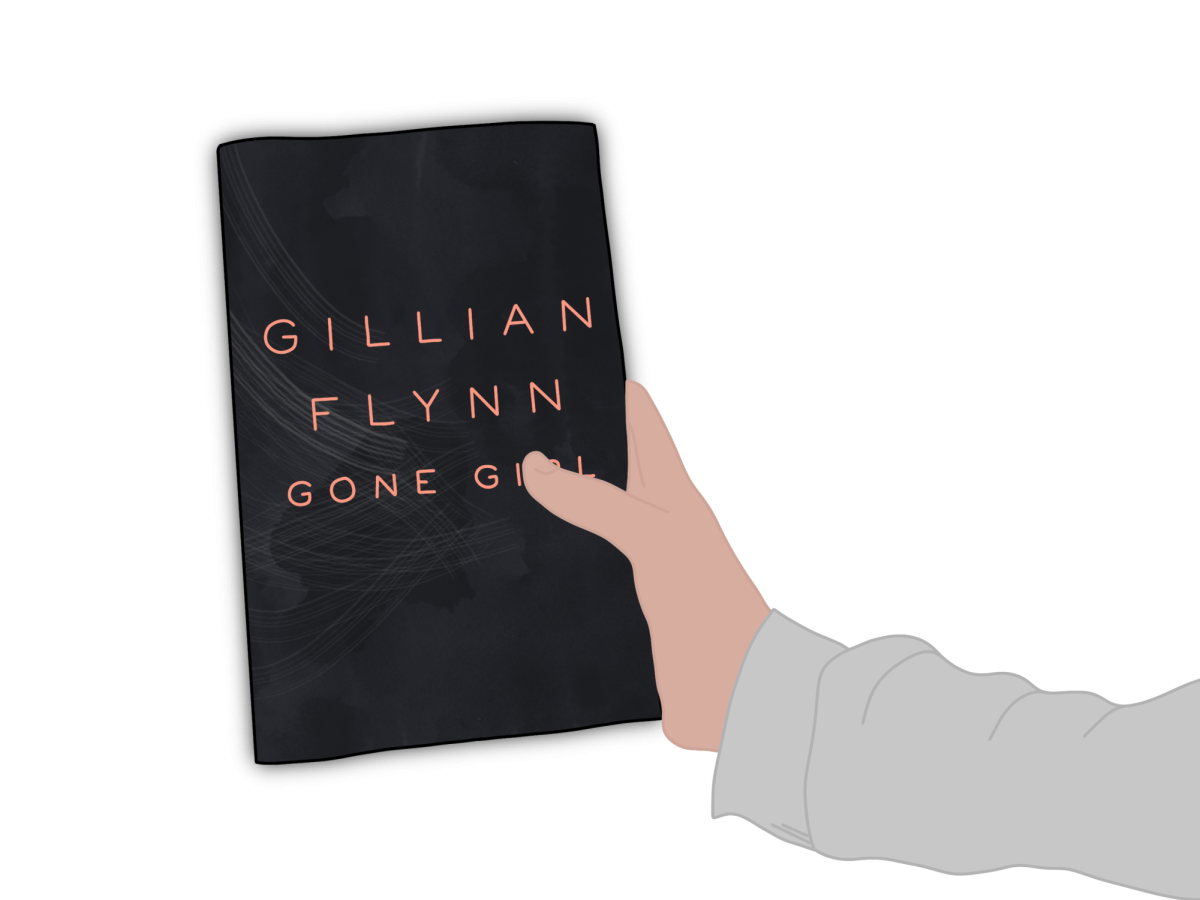Gone Girl: A Deep Dive into Gillian Flynn's Psychological Thriller

Gillian Flynn’s Gone Girl has captivated readers and critics alike since its release in 2012, becoming a cultural phenomenon and a staple of the psychological thriller genre. Its compelling narrative, unreliable narrators, and shocking twists have cemented its place as a modern classic, sparking widespread discussion about marriage, identity, and the dark undercurrents of seemingly perfect relationships. This article explores Gone Girl through various lenses, analyzing its literary merit, cultural impact, and enduring appeal, drawing on the themes typically explored in book reviews, author biographies, and literary analysis.
The Genre-Bending Narrative of Gone Girl
Gone Girl transcends the typical confines of the thriller genre. While it certainly delivers suspenseful twists and turns that keep readers guessing until the very end, it simultaneously functions as a sharp social commentary and a character study of exceptional depth. The novel’s innovative structure, employing alternating first-person narratives from Nick and Amy Dunne, creates a compelling sense of ambiguity. We’re presented with two drastically different versions of the same events, leaving the reader constantly questioning the reliability of both narrators and piecing together the fragmented truth. This technique not only fuels the mystery but also forces the reader to confront their own biases and assumptions.

The narrative unfolds gradually, deliberately withholding crucial information and building tension through carefully placed clues and red herrings. The initial mystery—Amy’s disappearance—is merely the catalyst for a much deeper exploration of a dysfunctional marriage and the complex, often contradictory, nature of human relationships. Flynn masterfully weaves together seemingly mundane details of domestic life with moments of chilling suspense, creating a narrative that is both intimate and terrifying. The novel also incorporates elements of dark humor and satire, adding layers of complexity and preventing the narrative from becoming overly bleak.

The Unreliable Narrators: Nick and Amy
The brilliance of Gone Girl lies in its unreliable narrators. Nick and Amy, the central couple, are both deeply flawed individuals, capable of deception and manipulation. Their contrasting perspectives highlight the inherent subjectivity of experience, revealing how easily perception can be skewed by personal biases, desires, and anxieties. Through their narratives, Flynn exposes the hidden tensions and unspoken resentments that simmer beneath the surface of many relationships, questioning the very nature of intimacy and the illusion of marital bliss.
Nick, presented initially as the hapless husband under suspicion, is gradually revealed to be a self-absorbed, somewhat immature individual capable of considerable self-deception. His narrative, while seemingly honest at first, gradually unravels as his lies and omissions are exposed. Amy, on the other hand, emerges as a cunning and manipulative character whose seemingly perfect persona masks a deep-seated bitterness and a willingness to exact revenge. Her meticulously crafted diary entries serve as a potent weapon in her elaborate scheme, manipulating both Nick and the reader. The ambiguity surrounding their characterizations—are they truly monsters, or are they simply products of their environment and circumstances?—is what fuels much of the novel’s intrigue and makes it so profoundly disturbing.
Gillian Flynn: Author and Voice

Gillian Flynn’s background as a television critic for Entertainment Weekly significantly informs her writing style. Her sharp wit, insightful social commentary, and keen eye for detail are evident in Gone Girl’s intricate plotting and realistic character portrayals. Flynn’s ability to blend genres, seamlessly weaving together elements of suspense, mystery, and dark humor, demonstrates her mastery of narrative craft. She doesn’t shy away from exploring uncomfortable truths about human nature, exposing the darker aspects of relationships and the capacity for cruelty even within the most intimate settings.
Flynn’s previous novels, Sharp Objects and Dark Places, also feature unreliable narrators and delve into the psychological complexities of flawed characters, showcasing her consistent exploration of these themes. This established expertise and stylistic consistency allows for a deeper understanding of her approach to writing Gone Girl, placing it within a larger body of work characterized by its intense psychological focus.
Flynn’s Inspirations and Writing Style
Flynn’s writing is characterized by its precision and psychological insight. She employs a crisp, often cynical, tone, using language to both reveal and conceal information, mirroring the characters’ own manipulative tendencies. Her prose is economical and efficient, devoid of unnecessary embellishment, allowing the suspense and psychological tension to build organically. The use of short, declarative sentences creates a sense of immediacy, while longer, more descriptive passages are used to highlight moments of emotional intensity or reflection.
While the specific inspirations for Gone Girl remain somewhat opaque, Flynn has mentioned the influence of classic thrillers and the fascination with unreliable narrators as key aspects of her approach. Her ability to create compellingly flawed characters, whose motivations are often complex and even contradictory, adds to the story’s lasting power. She delves into the intricacies of their inner lives, revealing their deepest fears and desires, making them both reprehensible and deeply human, further blurring the lines between victim and perpetrator.
The Cultural Impact of Gone Girl
Gone Girl’s success extended far beyond its impressive sales figures. Its publication sparked widespread cultural conversations about marriage, gender roles, and the nature of truth and deception in modern relationships. The novel’s exploration of marital dysfunction, unreliable narration, and the chilling consequences of toxic relationships resonated deeply with a broad audience, generating considerable media attention and intense critical analysis.
The term “cool girl,” coined in the novel, became a popular phrase used to describe a woman who seemingly embodies the ideal female persona, but whose true nature may be far more complex and manipulative. The phrase sparked widespread debate on its accuracy and its implications for gender dynamics in modern relationships. The novel also highlighted the power of the media and its role in shaping public perception, often at the expense of truth and justice.
Adaptations and Awards
The novel’s success translated into a highly successful film adaptation directed by David Fincher, starring Ben Affleck and Rosamund Pike, which further propelled Gone Girl into the mainstream consciousness. The film captured much of the novel’s dark humor, suspense, and psychological depth, though it necessarily made certain alterations to adapt the complex narrative to a visual medium. The performances, particularly Pike’s portrayal of Amy Dunne, received critical acclaim and enhanced the novel’s enduring legacy.
Gone Girl received numerous awards and accolades, cementing its status as a critically acclaimed and commercially successful work of fiction. Its recognition in the literary world underscores the novel’s significant contribution to the thriller genre and its enduring impact on popular culture. The awards it received are a testament to its literary merit and its ability to engage readers on a profound level.
Reading Habits and Educational Value
Gone Girl’s complexity makes it a rewarding read for those who appreciate intricately plotted thrillers with deeply flawed characters. The novel’s slow burn approach, coupled with the unreliable narration, demands active engagement from the reader, prompting careful analysis of the narrative’s details and the motivations of its characters. The constant shifting of perspective and the gradual unveiling of information necessitate rereads to fully appreciate the layers of meaning woven throughout the text.
Furthermore, Gone Girl serves as an insightful exploration of various psychological concepts, including gaslighting, manipulation, and the complexities of human relationships. The novel’s exploration of these themes can be viewed as possessing educational value, prompting readers to reflect on their own interactions and perceptions, thus offering insights into human behavior and its complexities. The novel’s exploration of societal expectations regarding marriage and gender roles also provides ample opportunities for critical reflection on these important social issues.
Life Lessons and Themes
While Gone Girl offers no easy answers or simple moral lessons, it does provoke important reflections on the nature of relationships, the power dynamics between individuals, and the deceptive nature of appearances. It highlights the potential for manipulation and cruelty in relationships, questioning the very foundations of trust and intimacy. It further serves as a cautionary tale about the dangers of idealized expectations and the potential consequences of clinging to a romanticized vision of love.
The enduring appeal of Gone Girl stems from its ability to tap into universal anxieties and concerns about relationships, identity, and the darker aspects of human nature. Its lasting impact is a testament to its literary skill and its capacity to engage readers on a profound intellectual and emotional level. The novel’s themes are timeless and resonate deeply with readers across different generations, demonstrating its enduring cultural relevance.
Libraries and Archives: Preserving Gone Girl’s Legacy
The accessibility of Gone Girl through public and digital libraries has ensured its widespread readership, making its themes and insights accessible to a broad audience. Its inclusion in numerous reading lists and literary curricula further cements its status as a significant work of contemporary fiction. As a widely read and critically acclaimed novel, Gone Girl is likely to be preserved in numerous archives and special collections, ensuring its continued availability to scholars and future generations of readers. The novel’s enduring popularity ensures its continued presence in libraries around the world, securing its legacy for years to come. Its potential for continued academic study and critical discussion ensures that Gone Girl will remain a subject of interest for literary scholars and critics.
In conclusion, Gone Girl is more than just a gripping thriller; it’s a multifaceted work that explores complex themes with masterful storytelling. Its enduring popularity and impact are a testament to Gillian Flynn’s writing prowess and the novel’s profound resonance with readers and the literary world. Its continued exploration through various critical lenses—from genre analysis to feminist perspectives—will undoubtedly ensure its lasting legacy within the realm of contemporary literature.